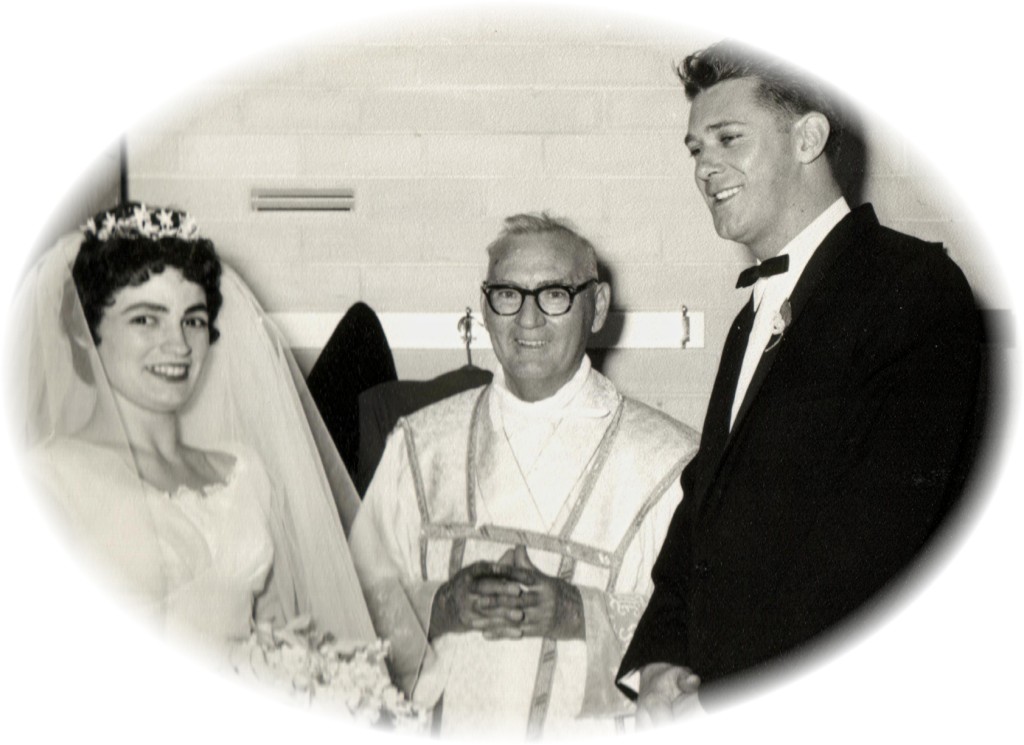Celebrating the Sacrament of Marriage at St Paul’s
Two other sacraments, Holy Orders and Matrimony, are directed towards the salvation of others; if they contribute as well to personal salvation, it is through service to others that they do so. They confer a particular mission in the Church and serve to build up the People of God.
Through these sacraments, those already consecrated by Baptism and Confirmation for the common priesthood of all the faithful can receive particular consecrations. Those who recive the sacrament of Holy Orders are consecrated in Christ’s name to feed the Church by the word and grace of God. On their part, Christian spouses are fortified for the duties and dignity of their state by a special sacrament. (Catechism of the Catholic Church, no. 1534-5)
A Catholic who is marrying a non-Catholic Christian may celebrate the sacrament either:
- By marrying in a Catholic church; in this case, the non-Catholic Christian pastor may be invited to attend and participate in the liturgy by offering prayers and/or saying a few words; the Catholic priest, however, must witness the exchange of consent.
- By marrying in a non-Catholic Christian church; in this case, the Catholic priest may be invited to attend and participate in the liturgy as above; in this case, it is normally the non-Catholic Christian pastor who witnesses the exchange of consent.
In either situation, if the Catholic party has received the proper dispensation from the Archbishop, and the couple have received instructions from the Catholic priest and attended one of the required Archdiocesan marriage preparation programs, the marriage is sacramental.
MATRIMONY
A Catholic may be married either in St Paul’s Church, or in any other Catholic church with the permission of the local priest. If a St Paul’s parishioner wishes to marry in a Catholic church other than St Paul’s, he/she should inform St Paul’s priest.
A Catholic who is marrying a non-Christian (Jew, Muslim, Buddhist, Hindu or unbeliever) may do so, and the couple is required to receive instructions from the Catholic priest and attend one of the Archdiocesan marriage programs; however, this marriage is not sacramental since it is not contracted between two baptised Christians.
- A copy of their baptismal certificate(s); Catholics should ask the parish where they were baptised for a new copy of the certificate that also notes the date and place of their Confirmation; non-Catholic Christians are likewise requested to acquire a copy of their baptismal certificate from their church; these certificates will be kept and included in the parish marriage file;
- A notarised birth certificate or passport; these will be returned after the information required by the Government is recorded in the marriage papers.
The couple will normally meet with the priest for three sessions before they attend the Archdiocesan marriage program, and then for another one or two sessions afterward, when they will prepare the liturgy of marriage. Therefore, it is recommended that the engaged couple meet with the priest as soon as possible, even before they set a wedding date.
Catholic marriages are not celebrated outside sacred places (churches), unless there is a grave reason to do so. In this case, it is necessary to apply to the Archbishop for a dispensation to marry outside a sacred place.

